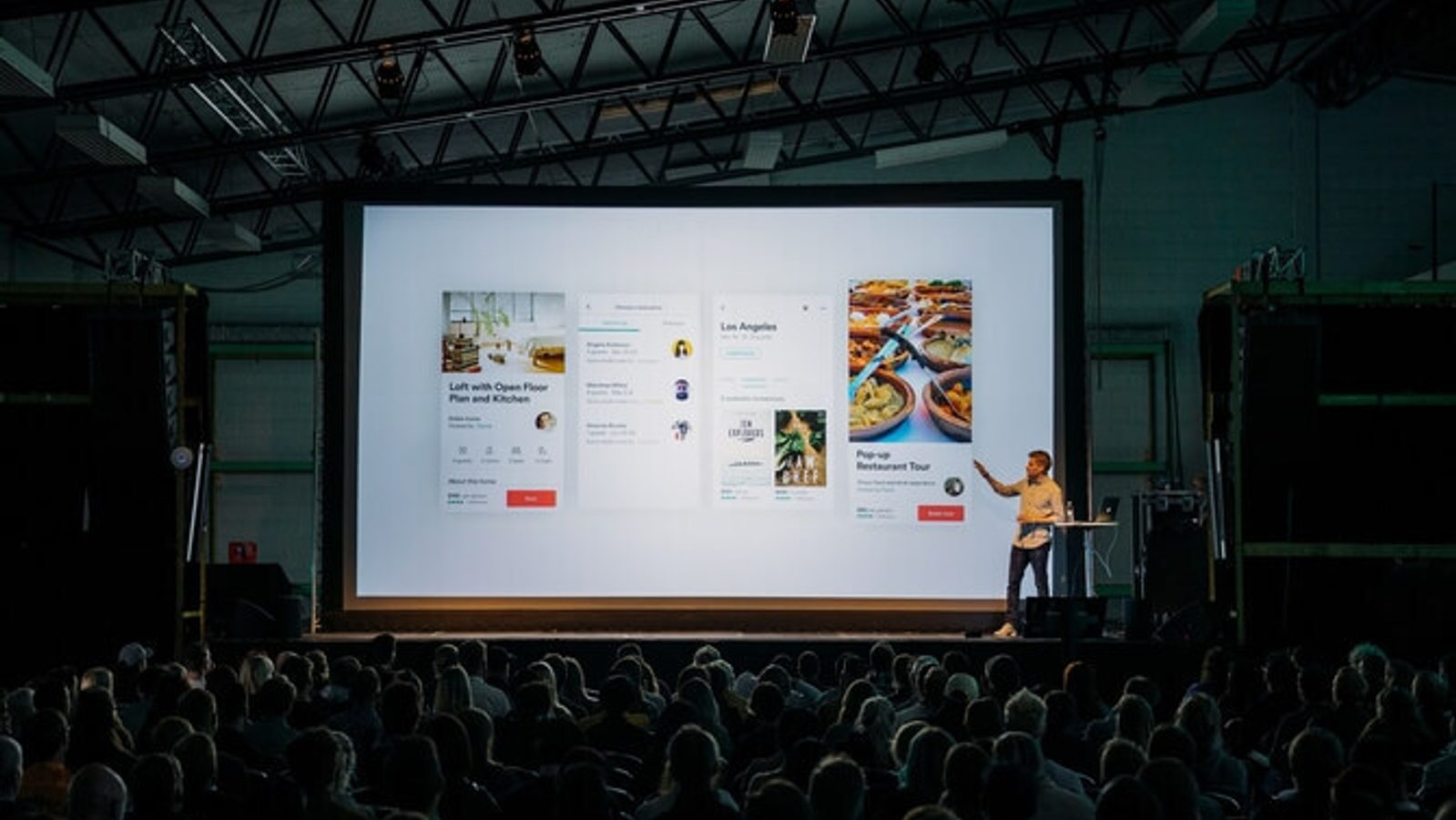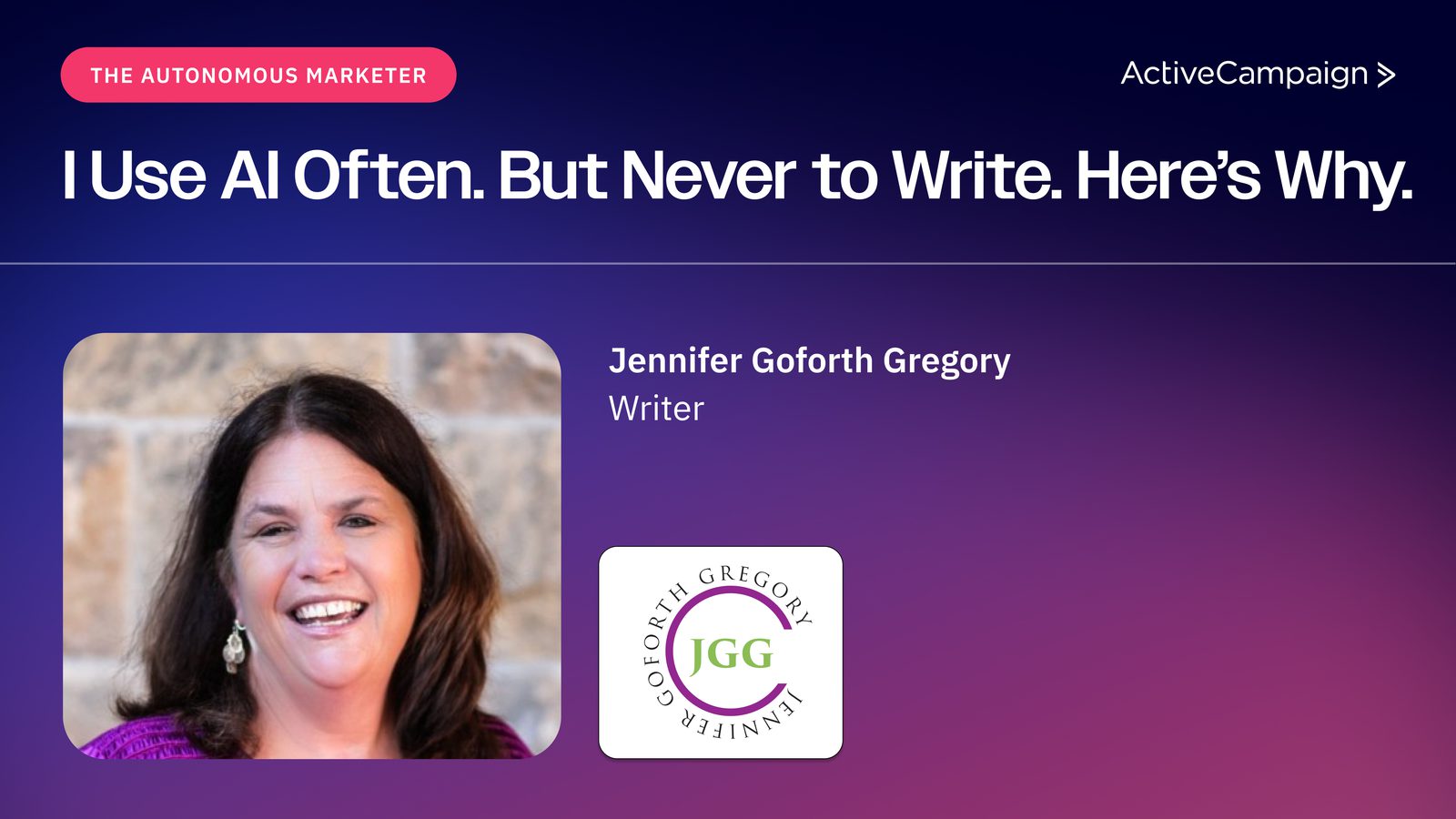Conferences were always a reality of business life. No matter what industry you’re in, conferences were a great way to learn from the best in your field and network with new people.
Until they weren't.
But they will be again.
And it isn’t obvious how to get the most out of a conference.
Maybe you aren’t sure what your goals should be at a particular conference.
Maybe you don’t feel all that confident about networking with strangers.
Maybe work is paying for a conference, but you weren’t totally sold on attending in the first place.
Whatever the reason, you’re on the roster. You’re going to a conference. So you need to know how to get the most of it.
This article covers conference tips that help you use conferences to achieve personal, professional, and business goals. You’ll learn things like:
- How to meet new people—even if you aren’t usually comfortable networking with strangers
- The lifestyle adjustments you’ll need to make while traveling
- Follow-up techniques that create a lasting impression
- How to make sure key speaker insights don’t go in one ear and out the other
Benefits of attending conferences
There are a lot of potential benefits of attending conferences that go beyond the simple “network and learn from speakers.” Of course those are important, but there are other benefits that people don’t always consider.
For example:
- Social media content from the conference
- Trading notes on processes and tactics with people in your industry
- Setting up initial meetings for business partnerships
- Creating conference-specific content for a boost in visibility
- Hearing about the latest tools being used in your industry
- Connect with speakers and organizers to open up new opportunities
If these benefits still don’t feel very specific, consider this—all it takes is one new relationship to change your career or your business.
One great connection can lead to new job opportunities, partnerships, and content creation. One new idea, if it’s the right one, can change the way you approach all of your work.
Jay Acunzo, an expert marketer and keynote speaker at Content Marketing World, listed attending networking events as one of his top three pieces of advice for new marketers. As he says “good things happen when you know good people.”
Try it now, for free
A short packing list for conferences: What you might not think of
If you’re traveling for a conference, what should you pack?

Eveerrrryyythiiiiiiiiiiiiiing!!!!
Of course you need to bring clothes to wear and your phone. You’ll probably want a laptop too. But what about going beyond the bare essentials and bringing some useful things you might not normally consider?
- Extra pens to carry with you
- Books to get signed by notable speakers
- A power strip (this will make you popular)
- An extra charger (for backup, but also for the same reason as the power strip)
- Mints
- Chapstick
- Hand sanitizer
- Hand lotion
- Snacks for the conference floor
- A light sweater (even in summer, conference centers are usually brisk)
Without further ado, let’s dive into our 30 best conference tips.
1. Figure out what you want to get out of the event
After you’ve determined that an event is a good fit, it’s important to figure out your goals for the event in advance. Knowing what you want to get out of an event will help you figure out what to prioritize.
- What do you want to get out of the event?
- Is the goal of the event to meet a lot of people?
- A specific person?
- Are you looking to set up a partnership of some sort for your company?
- Are you looking for clients?
- Are you primarily trying to learn from the speakers, and less concerned with networking?
The way you approach the event, the sessions you choose, and the people you talk to all depend on your reason for being there. Figure out that objective before you hit the conference floor.
2. Figure out who you want to meet before the event
Who’s going to be at the conference?
You probably can’t get the full list of attendees. But you can...
- Follow the conference hashtag on Twitter
- Check the agenda
- Ask your existing network to see who else will be there
If you have people that you know you want to connect with, having that information in advance is a huge advantage. You can brush up on their work or subject area, and prepare a few tailored questions in advance.
This kind of preparation can help you leave an impression, but it also makes conversation easier—because you won’t need to scramble for things to talk about.
3. Connect through pre-event social
People use conference hashtags.

See?
Of course you’ll want to be tweeting during the event (#foreshadowing), but it’s not a bad idea to engage with people on social media before the conference starts.
Twitter and LinkedIn on the usual culprits. Joining in the discussion can give you a sense of who will be there and what they want to talk about.
Depending on the size of the conference, it might also lead to in-person conversation starters. “Oh you’re the one who was talking about XYZ on Twitter.”
4. Sleep. Seriously.
Wait, is this a conference tip or a life tip?
It’s both, but it’s especially important for conferences because sleep is the first thing that goes out the window.
If you travel for a conference, it’s easy to wind up low on sleep. You try to go to bed at a normal time, but jetlag gets to you. Or it’s a little harder to fall asleep in a hotel room. Or you stay out late at a conference cocktail party.
You know yourself best, but don’t underestimate the power of a good night’s sleep (and if you aren’t convinced, read this book).
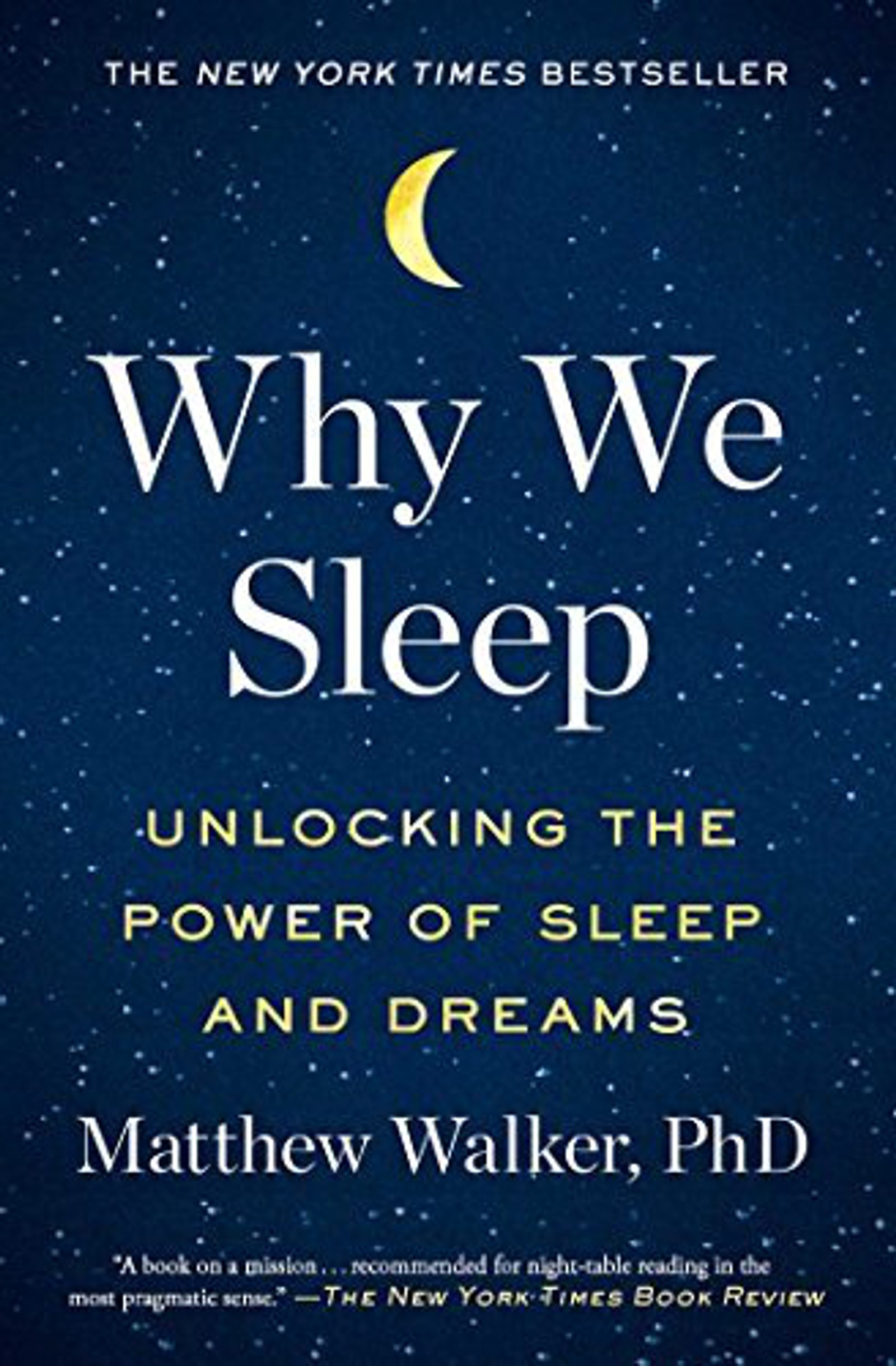
This books covers the latest research on sleep. Seriously, it will change how you think about pillows (Source, Amazon).
You’ll be more alert, better able to learn from the speakers, and feel more comfortable meeting a bunch of new people.
5. Manage your diet
Just like sleep, diet is easy to lose track of when you travel.
Travel messes up your routines. But sleep, exercise, and diet can all have a major effect on your mood and energy. When you go to a conference, have a plan in place to make sure you don’t grab what’s easiest—which is usually some kind of fast food.

It hurts so good. But it will take its toll over the course of a conference.
Packing healthy snacks can help you keep hunger at bay, so you can choose a healthier food option instead of going into a McDonald’s drive-through.
6. Go to the gym
After the last two, you might have guessed this one was coming.
If you’re someone who usually works out, don’t neglect exercise while you’re at the conference. Steal a few moments in the hotel gym—you’ll feel more refreshed and prepared to get what you need out of the conference.
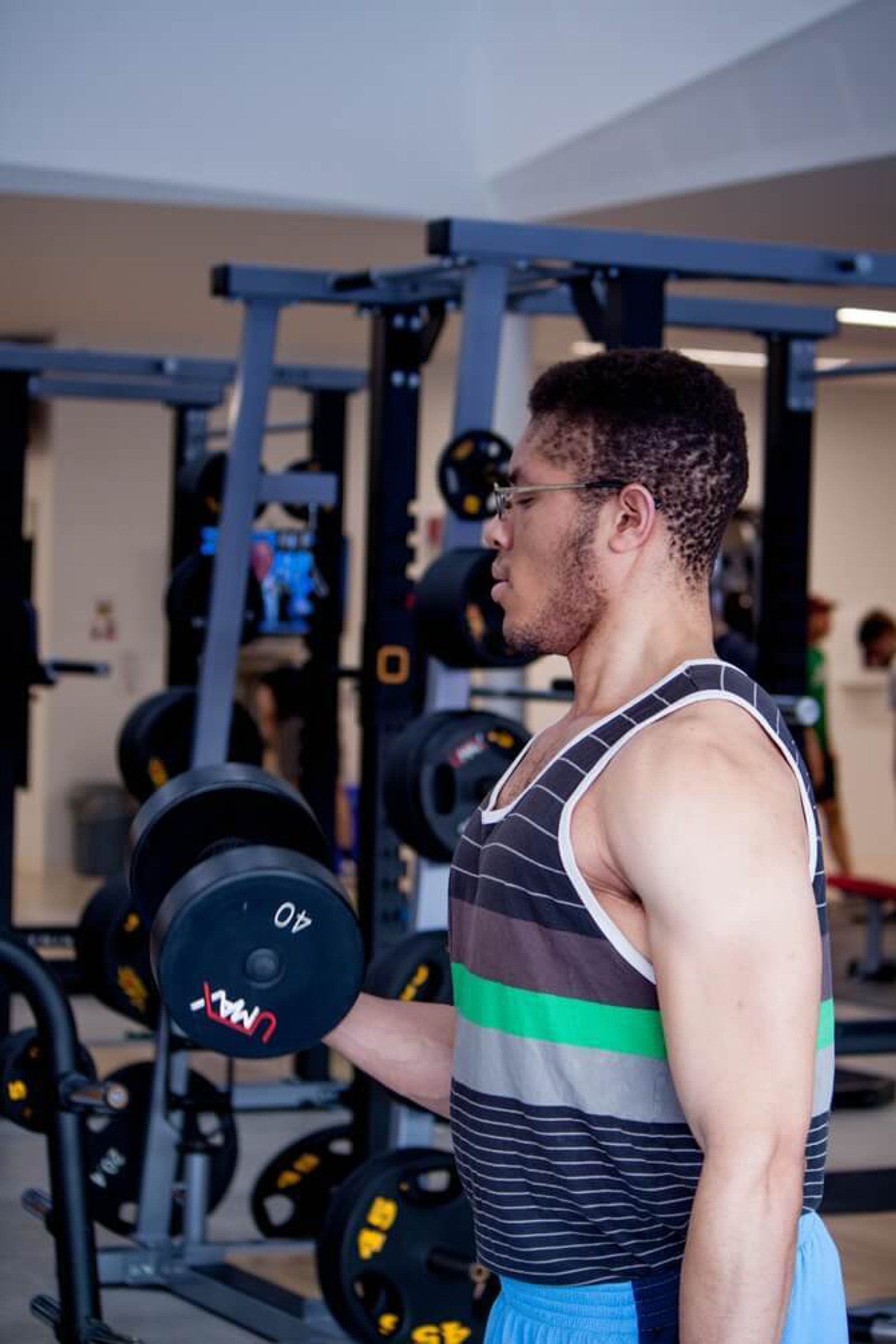
You, between conference sessions?
There’s actually one other potential benefit of going to the hotel gym—you’ll run into other people from the conference, in an environment that’s outside the conference itself.
7. Stay at the conference hotel
The conference hotel is where most conference attendees will be staying. Staying in the conference hotel gives you more opportunities to network with attendees.
That’s just logic.
Staying at the conference hotel might not get you 100 extra connections. But it doesn’t need to. Even if all it leads to is splitting an Uber back from happy hour, or some silence-filling small talk about the shampoo, those little moments can be worth it.
8. Set up an event outside the conference
If you’ve got the resources or know a good chunk of the people going, consider setting up an event outside the conference itself.
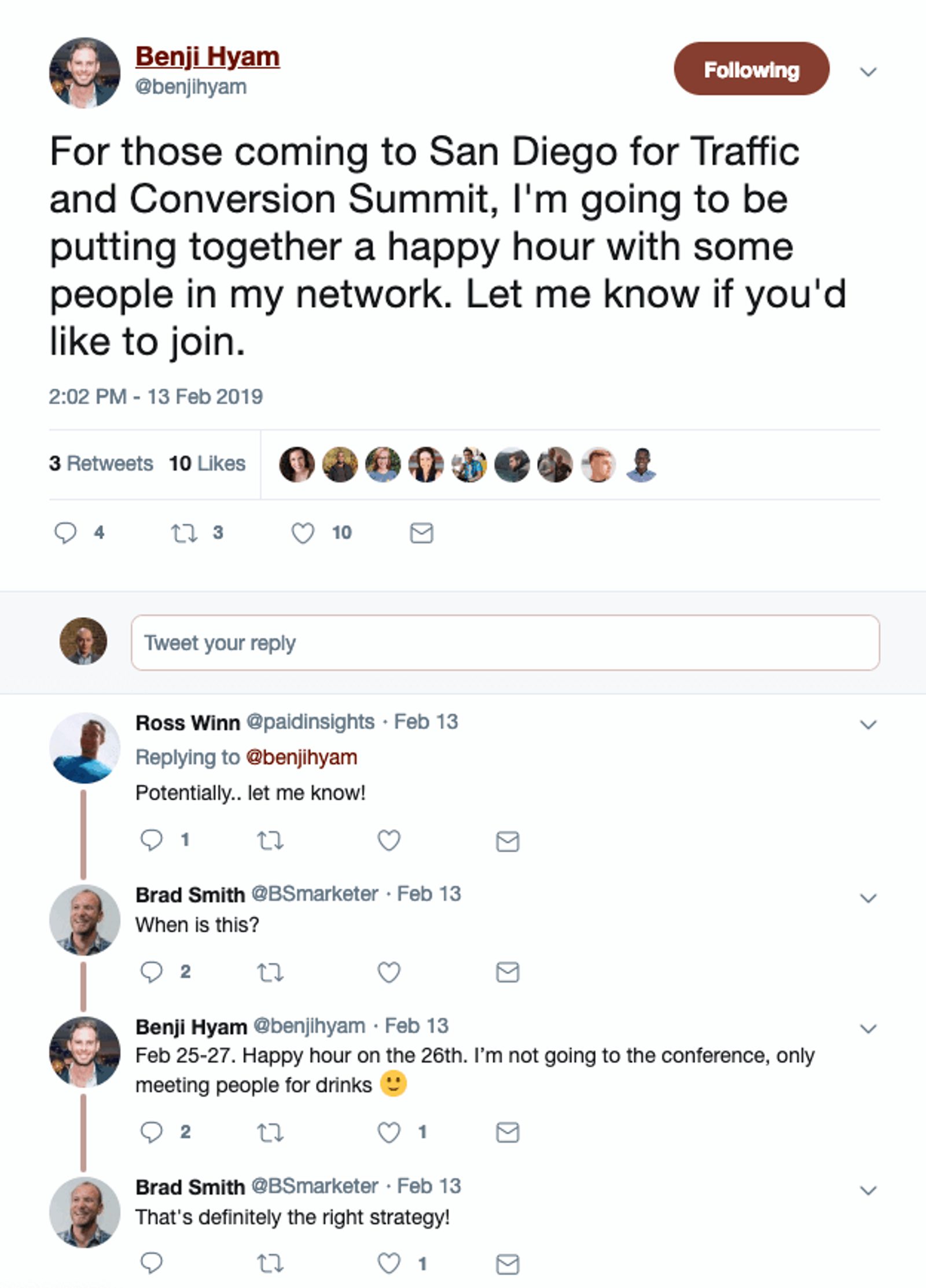
You don't even have to go to the actual conference!
People love conference happy hours and late-night wine tastings. Getting your network together can help you create the kind of small-group environment that leads to meaningful conversations and connections.
9. Review the agenda and pick sessions in advance
You don’t want to be making decisions on the day of the conference. If you have clear objectives, it should be relatively straightforward to pick out the breakout sessions that interest you most.
Which speakers do you want to see? (Source, SEMrush tweet)
If a promising connection is going to a specific session, you can make adjustments when you need to. But reviewing the agenda and having a plan will also help you know which sessions you would be ok missing and which ones are a must-see.
10. Watch videos of the speakers
How do you know which sessions to attend?
Watch videos of the speakers.
Watching videos of the conference speakers before the conference accomplishes two things.
First, it helps you know whether you really want to listen to that speaker.
Talk titles give you some information, but sometimes a speaker takes an angle you weren’t expecting, and you lose interest. Watching in advance can avoid that.
For example, this is Unbounce's Oli Gardner, one of the highest-rated speakers at Activate
Second, it gives you context. If you’re getting exposed to a new idea for the first time during a session, it can be hard to keep up or come up with good questions. When you watch old talks in advance and let ideas germinate, you’ll get more out of the in-person session.
11. Check out a map of the conference space
Surprisingly, most people don’t do this.
Looking at the conference space before you attend minimizes the number of things you need to worry about during the conference itself. You don’t want to be running around, searching desperately for the nearest bathroom. You don’t want to scramble to each session. That's why before attending a conference, you should go through the indoor navigation system and point out the important places.
When you know where things are and where you’re going, it’s easier to relax, focus on learning, and meet people.
Knowing where things are also means you can help people out. If someone is looking for the bathroom, you being able to say “oh it’s down this hallway to the left” takes care of an urgent need.
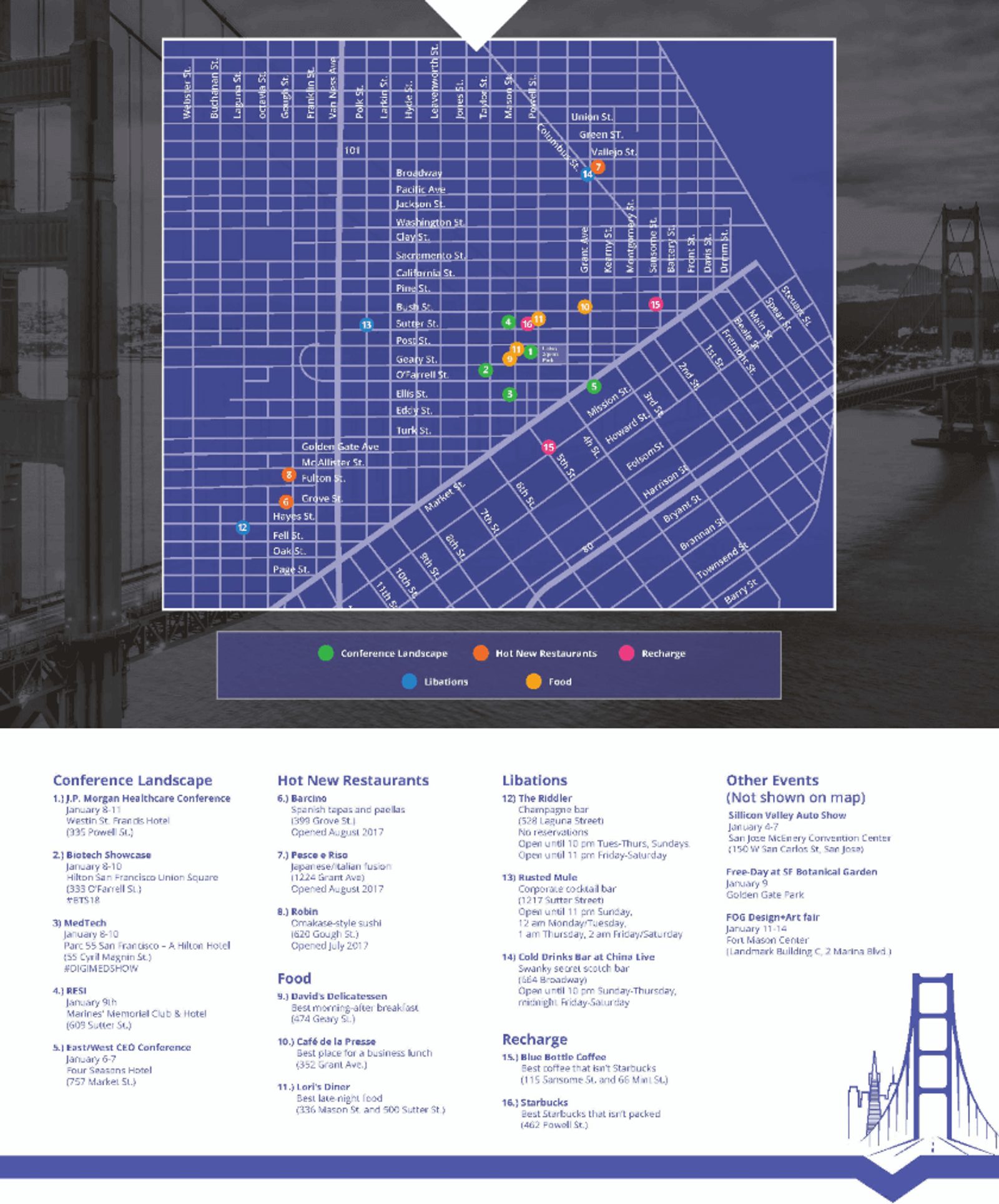
You can also learn the space around the conference (Source,CG Life)
12. Set your out of office reply
Make sure people aren’t expecting anything from you back at work! You don’t want to come back to angry emails.
This is a quick tip, but there’s also an opportunity. As with most OOO replies, you’ll probably want to refer people to one of your colleagues if they need immediate help.
But if your business produces a lot of content, consider tossing a link in your email signature.
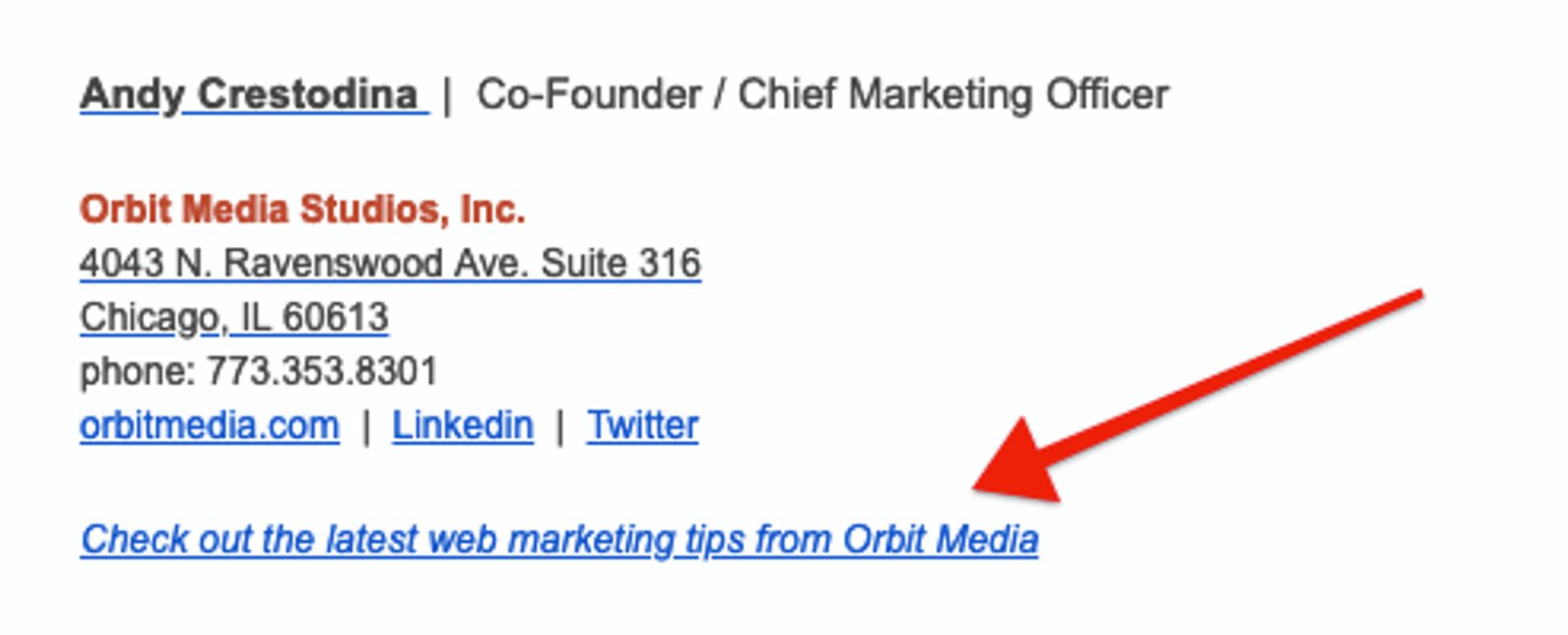
Andy makes sure to add a link to Orbit Media's blog in his email signature
13. Make sure you have a way to collect contact information
You could wind up with a lot of business cards.
The first time I went to a conference, I had no plan to collect business cards. When someone handed me a card, I reached into my back pocket to pull out one of mine...then reached into my other pocket to put away theirs.
And then I totally forgot about them. Until the next week, when they showed up, shredded, after I tried to wash my pants. Oops.
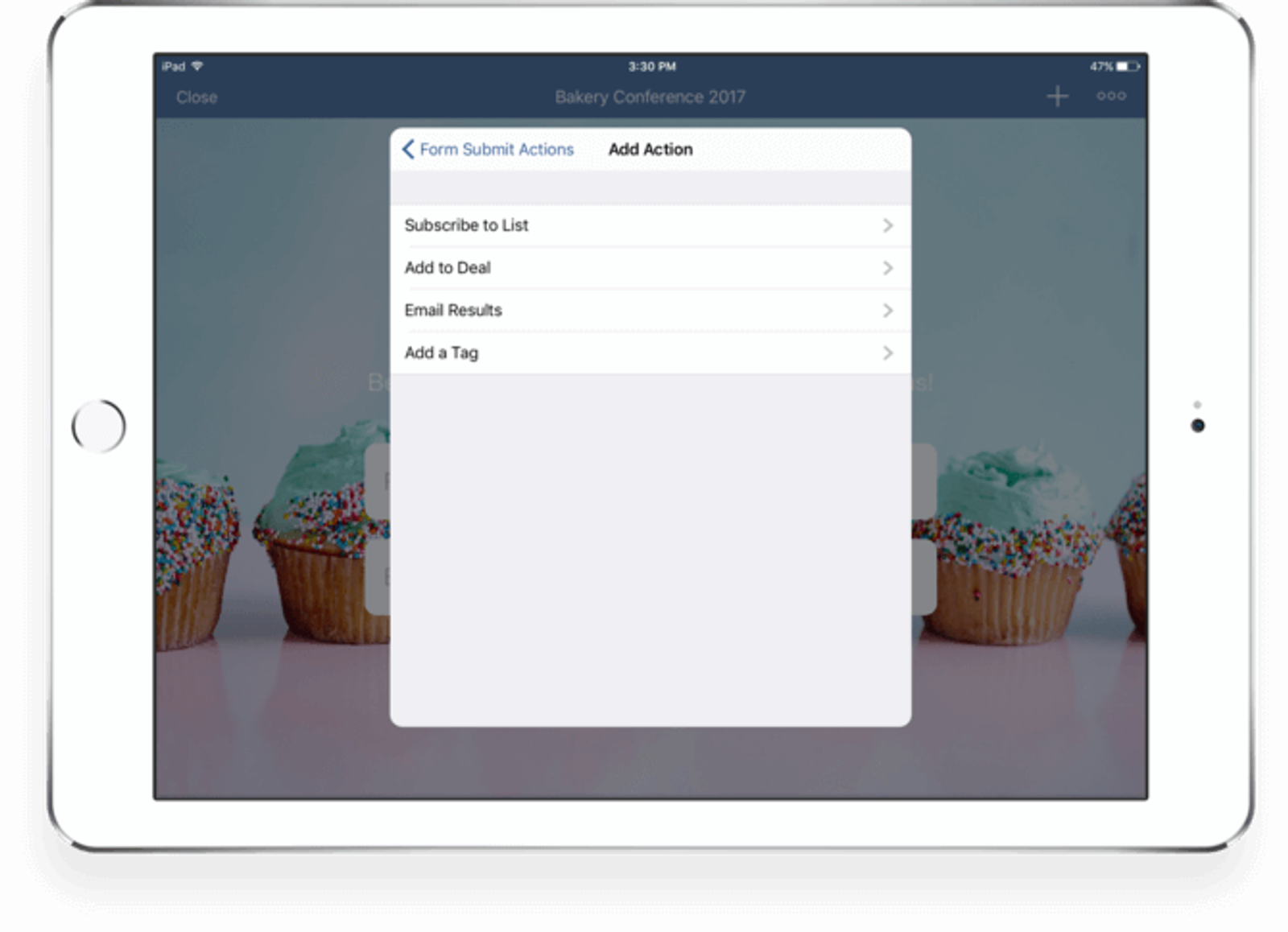
If you're there for your business you can even use iPad forms to collect leads
Make sure you have a way to collect contact information. Whether that’s a specific place you put and organize business cards or a way to pull information into a spreadsheet, come up with a system that keeps you organized.
14. Follow up after the conference
You don’t want to have a great conversation and then never talk to someone again.
The point of a conference isn’t just to meet people—it’s to network with people. If you go to a conference with a networking goal in mind, you need to make sure that you stay in touch with people after the conference.
Your level of follow up depends on the kind of relationship you want to have with someone.
If you made an interesting connection you want to stay in touch with, but don’t see any immediate opportunities, a simple “it was great to meet you” email is enough. It can also be a good idea to pass along an interesting piece of content based on something you discussed.
If you’re interested in developing a closer relationship with someone, try to set up a phone call. Even 30 minutes of one-on-one time, outside of the conference context, can be enough to begin a lasting relationship.
15. Follow up at the conference
Why wait to follow up!
Trading business cards is great. But it’s also easy to collect a bunch of business cards and then never hear from someone again.
Instead, try connecting with someone on the spot. Play a little game—see if you have any LinkedIn connections in common (which is also a fast way to build rapport). Then ask to connect on LinkedIn.
16. Follow up with a thank you card
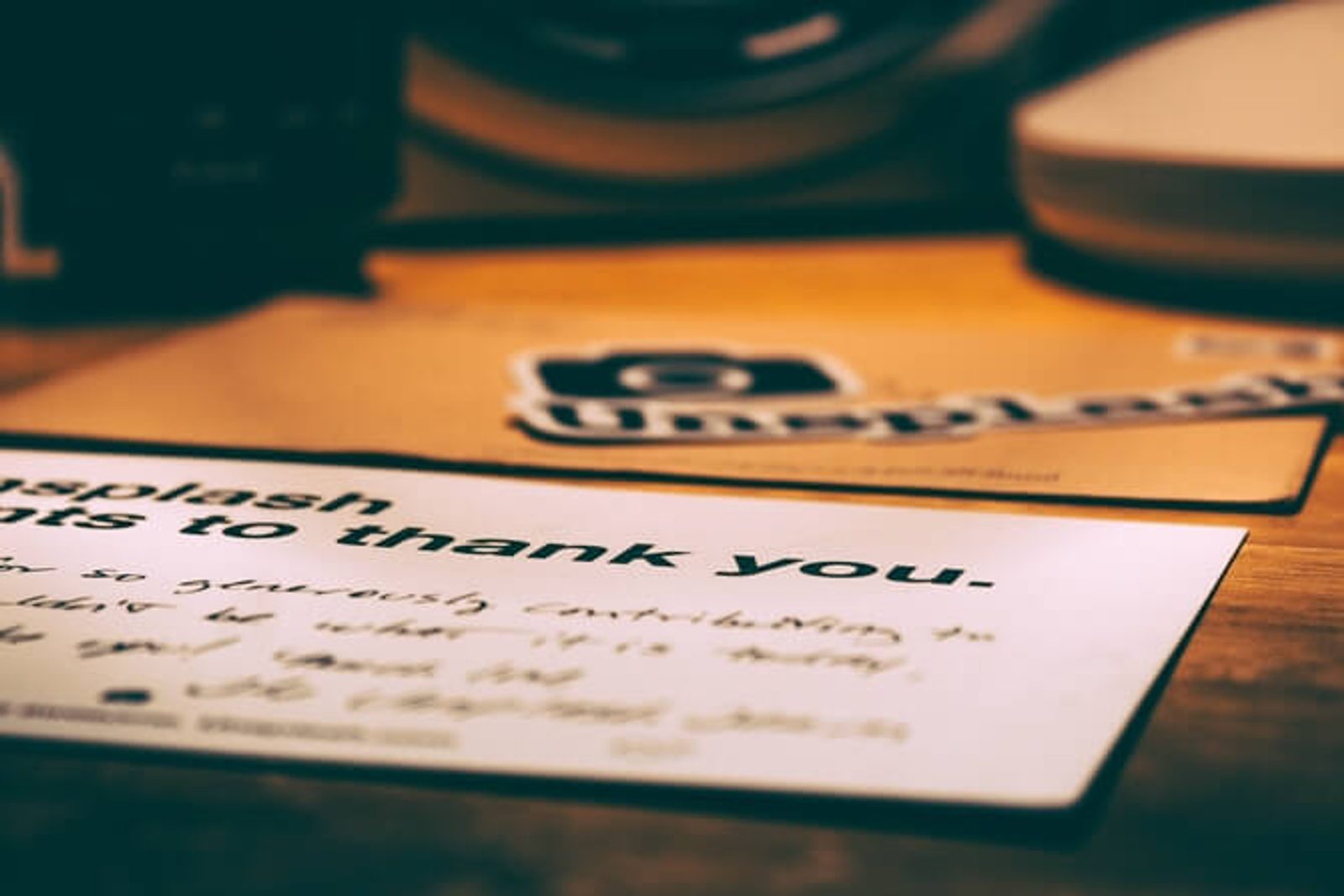
When was the last time someone sent you a handwritten thank you card?
If you had a really great conversation with someone, sending a handwritten card is next-level follow-up. It will definitely make you stand out.
And you don’t need to limit yourself to people you spoke with directly. You can also send a card to organizers or specific speakers—both groups of people who are very busy and might miss a standard email.
17. Take pictures with other attendees for easy social media content
If you need content for social media, take a picture with the people you meet!
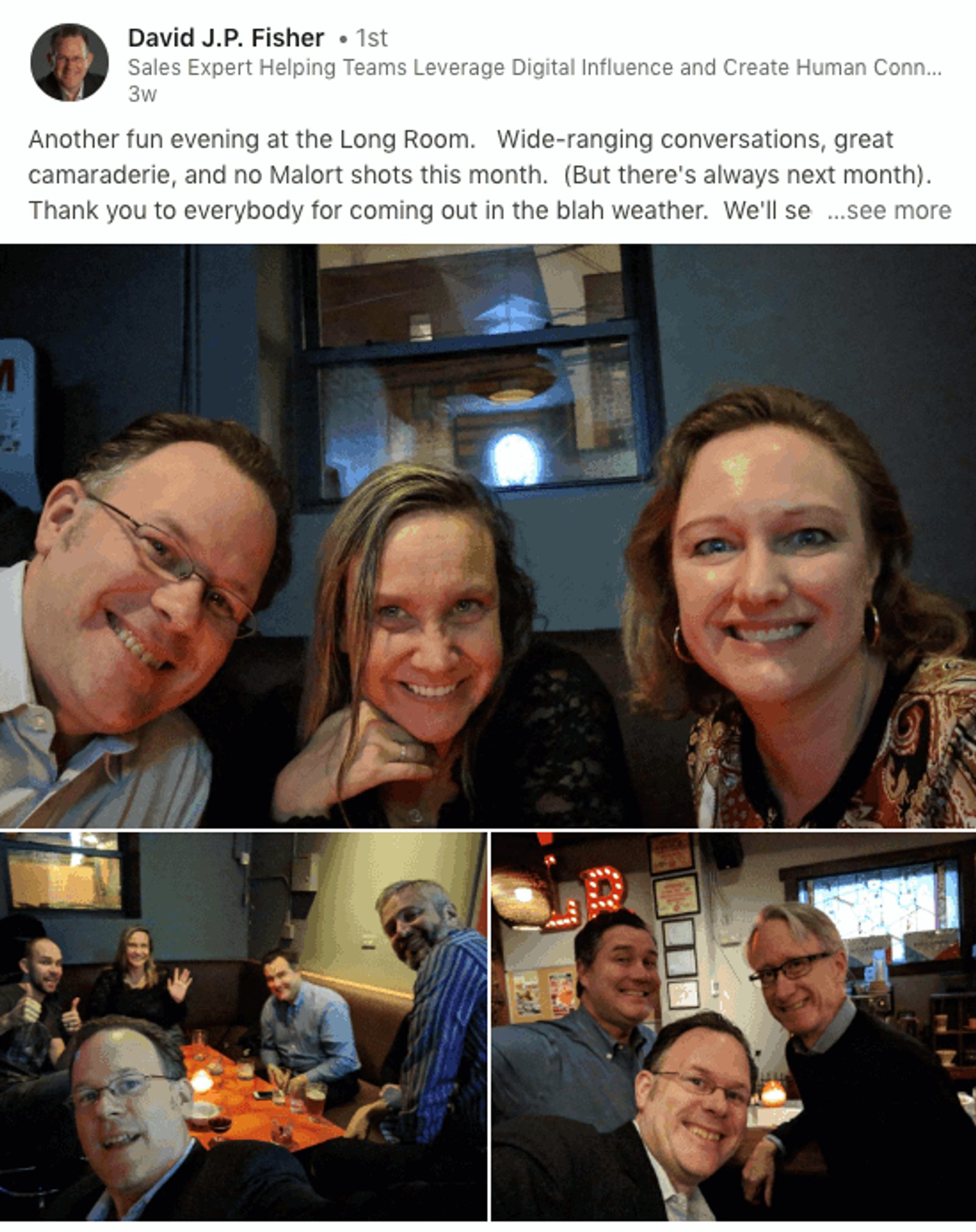
David Fisher is the master of this. Simple networking = great networking.
This is a super simple way to network and spread on social. Tagging people in your posts increases the chance that they’ll share it, and people at the conference will be perusing the conference hashtags.
Plus, you never need to know when you’ll need material for a new scrapbook.
18. Take detailed notes on each speaker
Conferences are a blur of activity, so let’s face it—you’re never going to remember everything people say.
12 years ago, I read a book that changed the way I took notes forever.
Before Cal Newport was known for his bestsellers Deep Work and So Good They Can’t Ignore You, he ran a blog called Study Hacks—and wrote the book How to Become a Straight A Student.
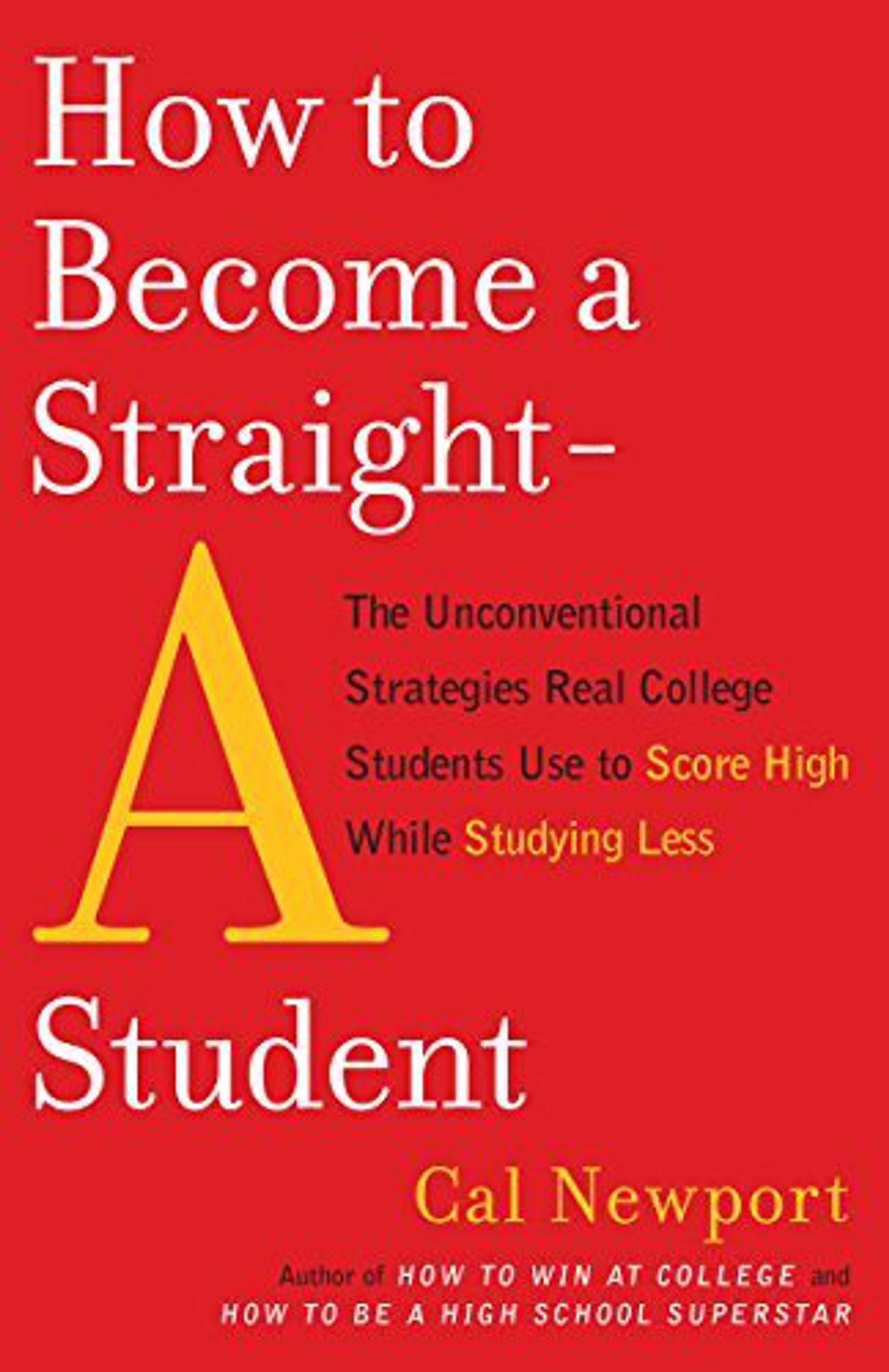
Even if you're not in college any more, the note-taking advice in this book is stunningly good (Source, Amazon)
Even if you’re well past your college years, Newport’s note taking advice is valuable. Newport argues that you should never record raw information when you take notes. He proposes a “Question/Evidence/Conclusion” format that makes note-taking faster and more effective.
A lot of people take notes by jotting down a few individual ideas. But then when you come back to your notes, it’s hard to remember what they mean.
Newport’s system solves that problem—I have notes from conferences I attended years ago that I can still reference and turn to on a regular basis.
19. Bring a power strip
You may have noticed “power strip” in our packing list up top. Are you really going to need to charge that much?
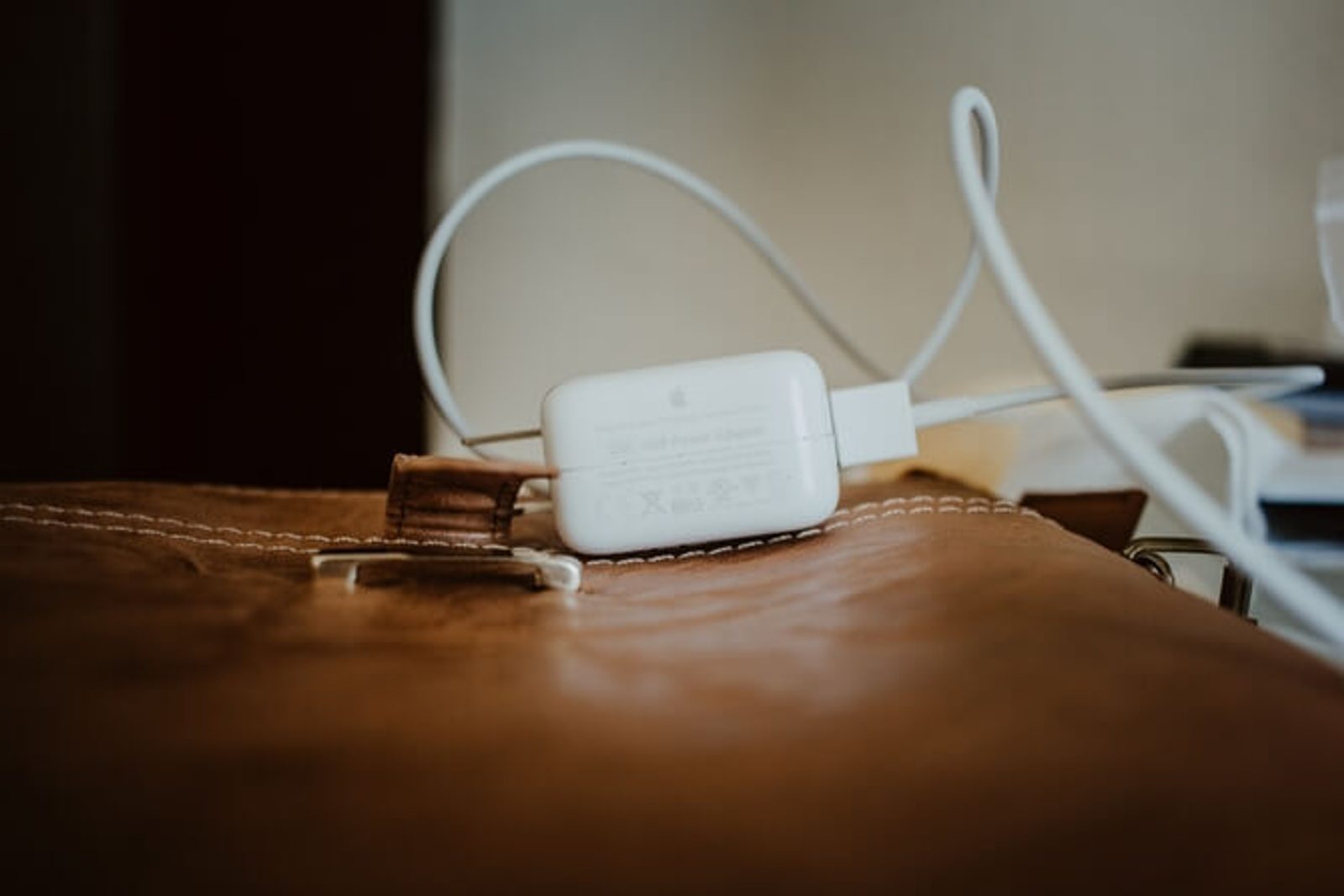
Hey, you never know. But even if you don’t bring six devices to a conference, a power strip is a simple way to make new friends.
Instead of hogging an outlet with your laptop and phone, you make it easy for people to come up, use your strip, and start a conversation. Perfect networking opportunity.
Note: This also works in airports. Everyone in an airport loves the person with a power strip.
20. Wear a silly hat
Is this a gimmick? Yeah. Does it work? Also yeah.
If you wear an eye-catching piece of clothing, people are going to catch your eye. You’ll get people coming up to you, even if it’s just to compliment your hat.
Depending on how outlandish you decide to go, it can be a little uncomfortable to wear something that sticks out. At the same time, sticking out gives you a built-in conversation starter—and makes people come to you.
21. Have an elevator pitch
Rehearse your elevator pitch.
You’re going to get asked “what do you do” an average of 90 bazillion times at any given conference. You want to make sure that you have a good answer.
What makes a good elevator pitch? You want your pitch to be:
- Clear
- Descriptive
- Emotional
You want to say what you do, in simple terms, that demonstrate why it matters. Feel free to work in an example or short story—examples can help you stick in people’s heads.
If you don’t have a rehearsed elevator pitch already, you can use conferences to test what people respond to.
I’ve learned, for example, that calling myself a “writer” generates less interest than either “content marketer” or “copywriter.” Similarly, “I work in marketing” is less interesting that “I do marketing for a tech company.”
When you add a qualifier to your elevator pitch (like “for a tech company,” or “that helps people do X”), you add a little hook for someone to latch onto—which makes it easier to move the conversation forward.
22. Prep some simple conversation starters
Is it a little weird to script conversations? Maybe. But isn’t it better to have some simple conversation starters than it is to hang around in the corner on your phone without talking to people?
A lot of conference conversations follow a kind of script anyway. Most conversations are going to start about the conference itself—which is totally fine! Having a few of these in your pocket makes it easier to start conversations.
Here are a few tried-and-true conversation starters you can use:
- What did you think of that last speaker?
- Hi, I’m [your name]! I don’t think we’ve met yet.
- How did you hear about this event/what made you decide to come?
- What sessions are you thinking of going to? I thought [name of session] looked interesting.
23. Remember names by understanding “encoding”
Why is it so hard to remember someone’s name?
If you Google “conference tips,” you’ll probably find a few helpful name-remembering tactics. Repeat their name, visualize them doing something weird, use it in conversation. You’ve heard them before.
But you can make those tactics more effective if you understand why it’s hard to remember names in the first place.
The first and most important reason? You never really learned it in the first place.
Psychology research has shown that there are three general stages to memory: encoding, storage, and recall. First you need to absorb the information, then you need to save it for later, then you need to take it back out to be used.
When you forget someone’s name, most people assume that there’s a problem with the recall stage. But most of the time, the problem is actually one of encoding.
If you aren’t fully paying attention when someone’s name gets said, you never transfer the memory to storage and won’t be able to recall it.
All of the little name tricks you hear—repeat someone’s name, use it in conversation, spell it out, associate it with something else—work because they improve encoding.
Finally: don’t be afraid to ask someone’s name again if you forget! Just say “I know you said your name, but I’ve already forgotten it.” Maybe they forgot your name too!
24. Use the conference hashtag
At a conference, there’s social media content everywhere.
Take pictures with other people. Tweet out slides or quotes from keynotes. Is the food good? Is there a cool statue in the conference space? All of that is fair game.
When you post to social media, make liberal use of the conference hashtag. People follow the conference hashtag, and tweeting about things as they happen is an easy way to get spotted.
25. Hands off the phone!
If you’re not posting to Twitter, LinkedIn, or Instagram, hands off the phone!
Every conference has the people who lurk in the corners, head down, staring at their phones. Don’t let it be you. Work email can wait—that’s why you set up your out of office reply.

Notice how this guy isn't talking to anyone
I get it. It can be tough to be around a lot of new people. But that’s part of what conferences are about, and a lot of people use their phones as a crutch to avoid meeting new people.
Using your phone makes you seem closed off, and people are less likely to start a conversation with you.
26. Make content about the conference
Content produced during a conference always does well.
Once I published a piece of content while still at the convention center. The content does well because:
- Everyone likes to read about things they experienced
- If you get it out fast, you’ll be the only one with content to read
This tactic is especially effective at non-marketing conferences, because other attendees are less likely to be producing content of their own.
How can you produce this content so quickly? Great notes! It’s easier to churn out content if you take incredible notes on speakers and sessions.
Great notes = fast content.
27. Eat lunch with people
Lunch might be the easiest time to connect with new people.
At lunch, everyone is naturally milling around, without much direction. People are looking for places to sit and eat. All you need to do is walk up to a table that’s starting to gather people and ask “do you mind if I join you?”
Note: sometimes, you’ll go into a conference with specific goals to network with specific people or build partnerships. In this context, you may be scheduling lunches in advance (and you won’t need to walk up to people cold).
But the lesson here is the same. As Keith Ferrazzi says in his book on networking, Never Eat Alone.
28. Bring a friend or coworker
Having someone else you know at the event can take a lot of pressure off.
When you aren’t worried about standing around doing nothing, it can actually be a lot easier to put yourself in front of new people.
You don’t necessarily need to arrive with the person either. Reach out to your network before an event to see if anyone else is going—even a loose connection will likely be happy to have someone else they know.
One caveat: there are always people at conferences who only talk to people they already know. Having a colleague to hang out with is great, but make sure it doesn’t stop you from meeting new people.
29. Get to know the organizers
Organizers are a great and under-appreciated resource.
If you have the opportunity, definitely introduce yourself to the organizers of an event.
Organizers love to hear their work being appreciated, and will probably have some useful tips for you in return. For example, an organizer can:
- Tell you where to find things at the conference
- Help introduce you to other attendees that they know
- Suggest speakers and sessions to attend
- Recommend restaurants, coffee shops, and bars in the area
In some cases, you’d need to get to know the organizer decently well before you get a high-powered introduction. But showing your appreciation never hurts.
30. Present to your team when you get back
You learned a lot at your conference, and took great notes. Present to your team so that everyone can share in the knowledge you come back with.

